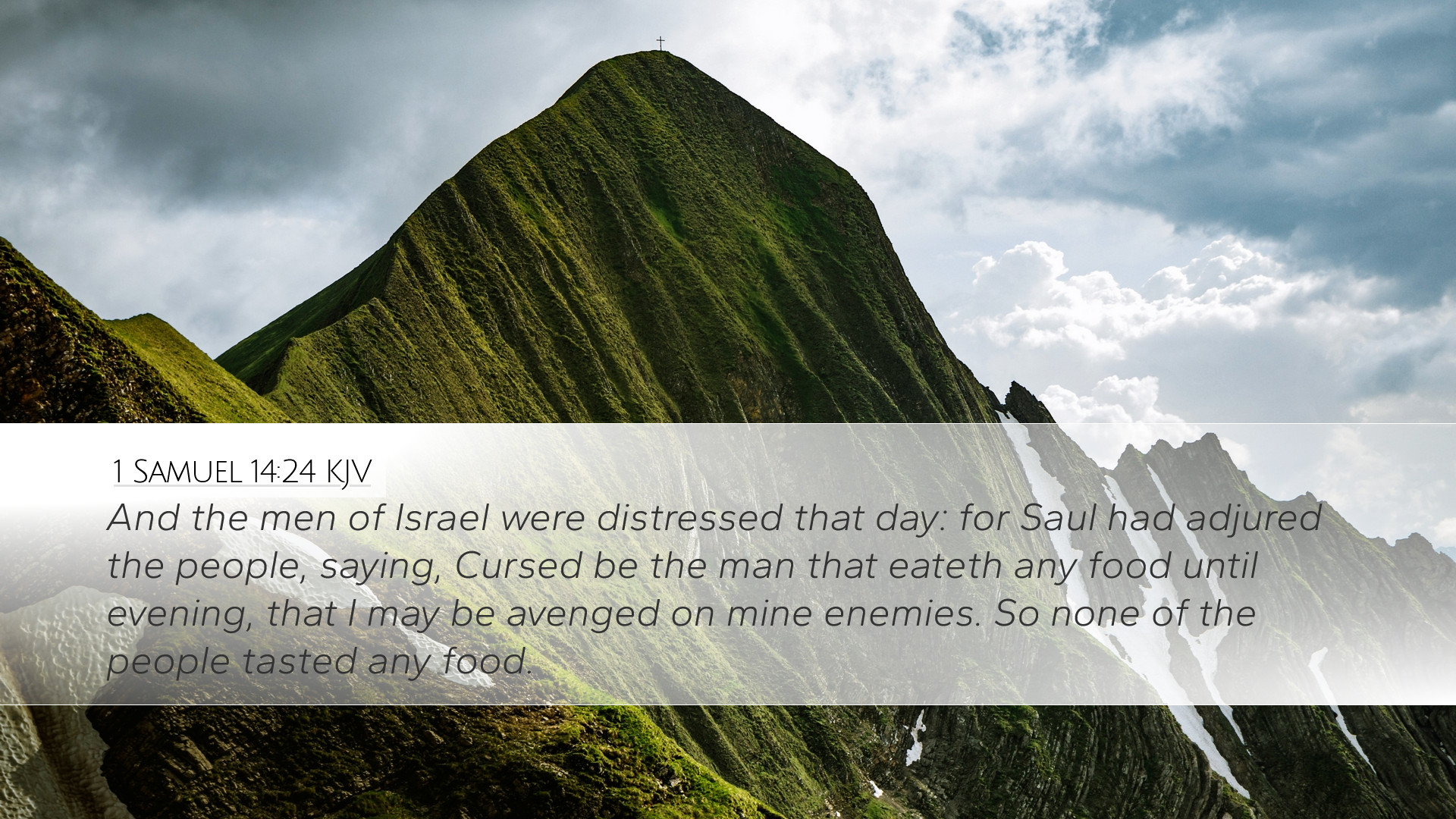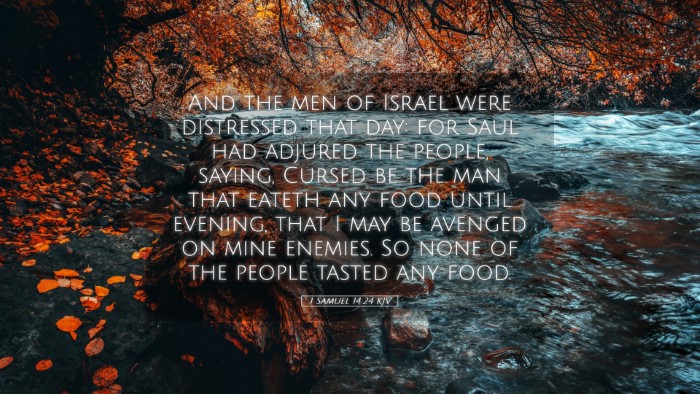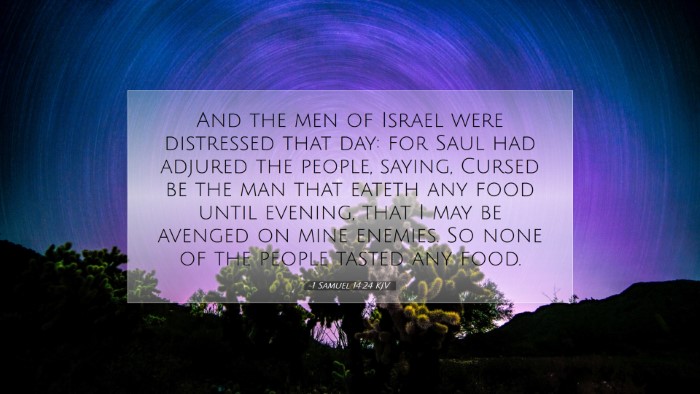Commentary on 1 Samuel 14:24
Verse: 1 Samuel 14:24 - "And the men of Israel were distressed that day: for Saul had adjured the people, saying, Cursed be the man that eateth any food until evening, that I may be avenged on mine enemies. So none of the people tasted any food."
Introduction
This passage reflects a critical moment in the Old Testament narrative concerning King Saul and the people of Israel. It highlights themes of leadership, the consequences of hasty vows, and the distress that can come from following such orders. Our examination draws from public domain commentaries, particularly those of Matthew Henry, Albert Barnes, and Adam Clarke, to provide a rich theological perspective.
Contextual Analysis
At this point in the narrative, Israel is engaged in battle against the Philistines, and Saul, in an effort to rally his troops, issues a rash oath. By commanding that no one eat until evening, Saul's intention is to ensure focus and fervor against the enemy. However, this act reveals significant flaws in his leadership.
Saul's Leadership
Matthew Henry observes that Saul's leadership is characterized by impulsiveness and a desire for personal glory. By cursing anyone who eats, he seems to prioritize his vengeance over the well-being of his soldiers.
The Consequences of Hasty Vows
Albert Barnes emphasizes the danger of making solemn vows in the heat of passion or amidst stressful circumstances. Such vows can lead to unintended suffering. Saul's command becomes a source of distress for his men, who, despite being in dire need of sustenance, are compelled to obey.
Reflections on Disobedience
The vow struck at the heart of the soldiers' morale and physical strength. Adam Clarke notes that the context indicates the severity of the situation; the soldiers were already fatigued from battle, and withholding food only exacerbated their condition. This raises questions about the nature of authority and the responsibilities that come with it.
Theological Insights
The Nature of Vows
From a theological perspective, the passage invites reflection on the nature of vows and commitments made before God. Saul's vow appears similar to the vows seen in previous scripture passages, where elements of oaths carry significant weight. Matthew Henry stresses the importance of exercising wisdom and seeking God's guidance in matters of significant commitment.
The Importance of Mercy in Leadership
This verse serves as a caution about leadership responsibility. A benevolent leader must consider the needs of their followers. Albert Barnes underlines that the mark of true leadership is to balance duty with compassion—Saul failed in this regard, leading to unnecessary suffering among his men, ultimately hindering their effectiveness in battle.
Practical Applications
- For Pastors: This passage can guide sermons on the importance of thoughtful leadership within the church. It serves as a reminder that decisions made under duress or urgency may lead to harm.
- For Theologians: The account encourages examination of leadership dynamics in scriptural narratives, particularly the implications of vows and commitments made in the name of God.
- For Students: This text prompts inquiry into the ethical responsibilities of authority figures and the necessity of prioritizing the well-being of the community over personal ambition.
Conclusion
1 Samuel 14:24 stands as a poignant reminder of the complexities surrounding leadership, the grave consequences of hasty decisions, and the profound impact such decisions can have on followers. The insights drawn from the commentaries enrich our understanding and challenge leaders in all capacities to act with wisdom and mercy, reflecting the character of Christ in their decisions.


